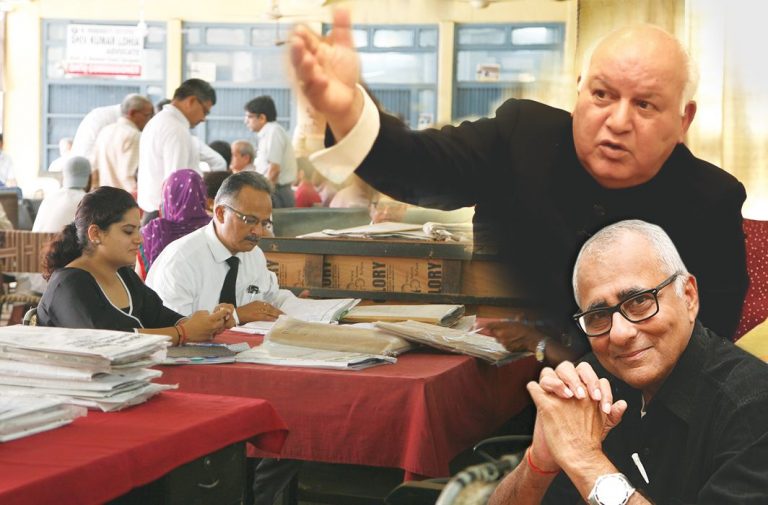
By Inderjit Badhwar
Not for nothing is Justice Bashir Ahmed Khan called the “Badshah of Law”. This legal luminary has served as Chief Justice of the Jammu and Kashmir High Court, Acting Chief Justice of the Delhi High Court, Administrative Judge of the Madhya Pradesh High Court’s Indore branch and is currently chief of the Jammu and Kashmir State Accountability Commission, an anti-graft body similar to the Lokpal.
I caught up with him recently in Delhi and persuaded him to talk of the major challenges facing the judiciary, including, loopholes in the system, corruption and lack of accountability. Here are some of the major points that emerged from the interview and merit attention of the judicial community:
- The issues of faulty recruitments, inadequate infrastructure, judicial delays and expense must be addressed on a priority basis.
- There is a need to check the commercialisation of the legal profession, government apathy and rivalry towards the judiciary and improve access to the system for the common man.
- With regard to the criminal justice system, everything is in disarray and mess—from shoddy investigation to dysfunctional prosecution and lethargic adjudication. A supervisory mechanism must be set up to check lethargic judging and all factors which lead to delays in trials with people languishing in jails and serving longer terms of sentence than prescribed under laws and thereby losing faith in the system.
- Investigating and prosecution agencies must be made independent so that they are not found changing colours with the change of political dispensation.
- The government must increase investment in the judicial system which is an important limb of the State under the Constitution. The investment allocated in this budget is too low. One has only to experience the miserable conditions and the atmosphere prevailing in our courts to realise why infusion of funds is paramount.
- The apex court should be deciding constitutional issues and legal matters of public importance, rather than spending public time on matters like PILs, SLPs, etc, which should be left to be considered by other forums.
- As long as judicial intervention is allowed to meet the ends of justice and is within the framework of the Constitution and law, it must be accepted. Now scrutiny mechanisms are in place in High Courts to prevent any misuse of PIL jurisdiction.
- The issue of corruption in the judiciary must be dealt with cautiously to avoid any threat to the independence of the institution. It is nobody’s case that all is well in the judiciary and that only saints washed in milk and honey are running it. There are black sheep present but to paint the whole institution with a tarred brush is unjustified and unacceptable.
- There is a need for enforcing judicial accountability and standards in the system, for which efforts have been made since 1968 when the Judges Inquiry Act was enacted. Thereafter, legislations in this regard were brought before Parliament but were allowed to lapse.
- Of late, one witnesses a pattern of targeting successive chief justices of India. There is actually a need to check this trend while enacting any law related to judicial accountability because the independence of the judiciary needs to be protected to sustain people’s faith and confidence in the institution.
- Anti-corruption mechanisms are created only for a political purpose. There is no intent to make these effective or potent to facilitate good governance. It is imperative that they are empowered and allowed to function freely and fairly to achieve the purpose for which they were set up.
- Lokayuktas in states should be empowered and allowed to function freely and fairly to achieve the purpose for which they were set up. The same is the case with the Lokpal and it must survive the political on-slaughts for the sake of national interest.
- The judiciary is the custodian of the Constitution and the rights of the people. Governments will come and go but the institution of the judiciary will grow as a bulwark in defense of the rights of the people.

